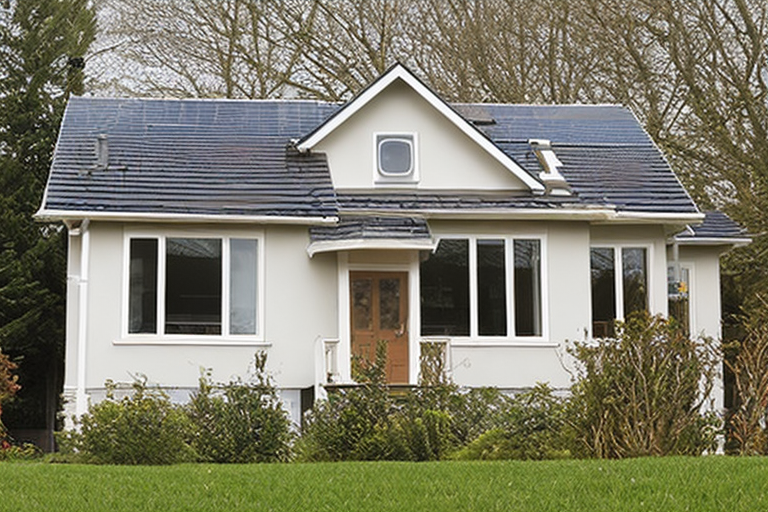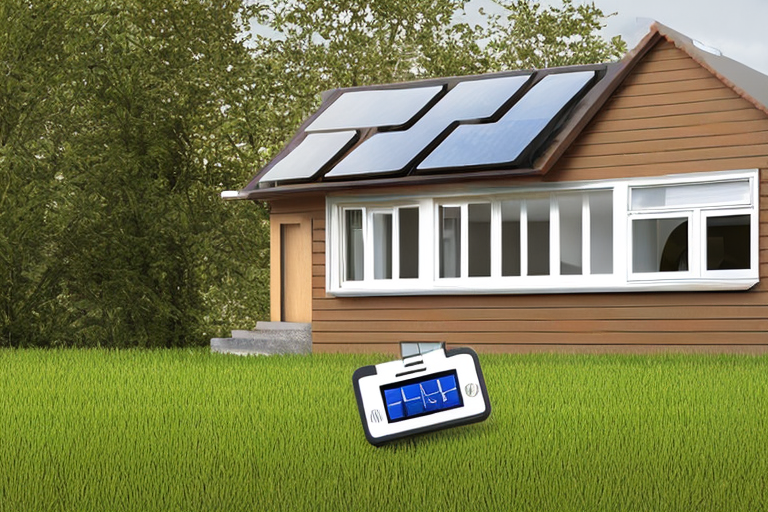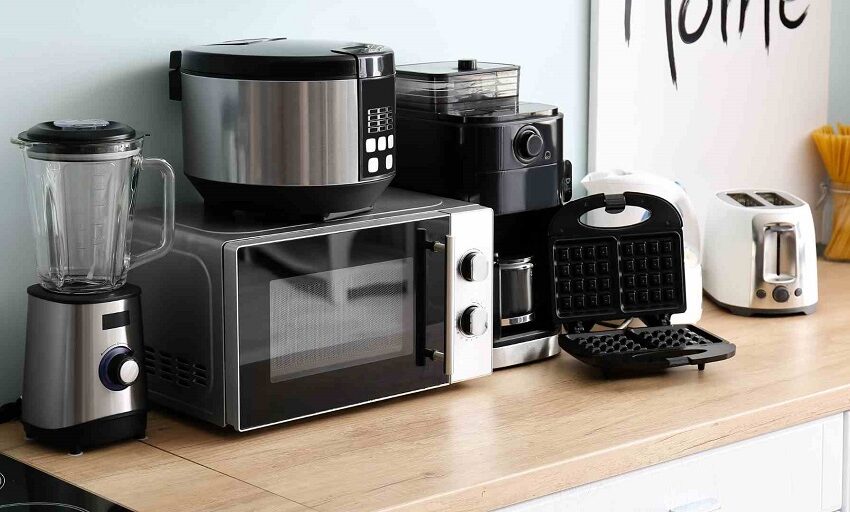Are you concerned about your energy consumption and looking for ways to make your home more energy-efficient? A free home energy assessment can be a valuable tool in understanding your energy usage patterns and identifying opportunities for improvement. In this article, we will explore the importance of energy efficiency, the benefits of a home energy audit, and provide practical tips for reducing energy consumption. So let’s dive in and discover how you can take control of your energy usage and create a more sustainable home.
The Significance of Energy Efficiency
In a world facing increasing energy demands and environmental challenges, energy efficiency has become a critical factor. By reducing energy consumption, we can not only lower our carbon footprint but also save on utility bills. DIY Garage Storage Shelves could be a free home energy assessment is an excellent starting point for homeowners to evaluate their energy usage and make informed decisions about energy-efficient upgrades.
What is a Home Energy Assessment?
A home energy assessment, also known as a home energy audit or residential energy assessment, is a comprehensive evaluation of your home’s energy performance. It involves a professional inspection of various aspects, including insulation, appliances, heating and cooling systems, and overall energy usage. The assessment aims to identify areas of energy wastage and provide recommendations for improvement.

Benefits of a Free Home Energy Audit
A free home energy audit offers several benefits to homeowners. Firstly, it provides a detailed analysis of your energy consumption patterns, highlighting areas where energy is being wasted. This information empowers you to take targeted action to reduce energy usage. Additionally, a home energy audit can uncover potential health and safety issues, such as poor indoor air quality or faulty electrical systems. Lastly, implementing energy-efficient upgrades recommended in the audit can result in significant cost savings over time.
Understanding Energy Consumption Analysis
Energy consumption analysis is a crucial aspect of a home energy assessment. By analyzing your energy bills, usage patterns, and the efficiency of your appliances and systems, experts can determine how efficiently your home uses energy. This analysis helps in identifying areas where improvements can be made, leading to reduced energy consumption and lower utility bills.
Energy Saving Tips for an Energy-Efficient Home
Creating an energy-efficient home is a continuous process that requires a combination of small changes and significant upgrades. Here are some practical tips to help you get started:
- Install programmable thermostats to optimize heating and cooling schedules.
- Use energy-efficient light bulbs and turn off lights when not in use.
- Seal air leaks around doors, windows, and ducts to prevent energy loss.
- Insulate your home properly to reduce heat transfer.
- Upgrade to energy-efficient appliances with a high Energy Star rating.
- Unplug electronic devices when not in use to eliminate standby power consumption.
- Utilize natural light and ventilation to reduce reliance on artificial lighting and cooling systems.
- Consider renewable energy sources like solar panels to generate clean electricity for your home.
The Process of a Home Energy Evaluation
During a home energy evaluation, a trained professional conducts a detailed inspection of your home’s energy-related components. They will assess the insulation levels, air sealing, HVAC systems, water heating, lighting, and appliances. This process may also include a blower door test to measure air leakage and a thermographic scan to detect insulation gaps and heat loss. Based on the findings, the evaluator will provide recommendations for energy-efficient improvements.
Energy Assessment Programs: Making a Difference
Many utility companies and government agencies offer energy assessment programs to promote energy efficiency. These programs often provide subsidized or free home energy assessments, making it easier for homeowners to access professional expertise without a significant financial burden. Taking advantage of these programs can result in substantial energy savings and a more comfortable living environment.
Energy-Efficient Upgrades: Investing in the Future
Implementing energy-efficient upgrades is an investment that pays off in the long run. By upgrading to energy-efficient appliances, installing better insulation, and optimizing your home’s heating and cooling systems, you can significantly reduce energy waste. These upgrades not only lower your energy bills but also increase the value of your home and contribute to a greener future.
Maximizing Savings with a Free Home Energy Check
A free home energy check is an opportunity to assess your home’s energy performance without any cost. During this check, professionals evaluate your home’s energy usage, identify areas for improvement, and suggest energy-saving measures. By taking advantage of this service, you can gain valuable insights into your energy consumption and make informed decisions about energy-efficient upgrades.
The Role of a Home Energy Inspection
A home energy inspection is a comprehensive evaluation performed by qualified experts. It involves a detailed examination of your home’s structure, systems, and appliances to assess energy efficiency. The inspection may include checks for insulation quality, HVAC system performance, air leakage, and appliance efficiency. By conducting a thorough inspection, you can uncover hidden energy inefficiencies and take corrective actions.
Realizing the Potential: Home Energy Analysis
Home energy analysis is a vital step towards optimizing your energy usage. It involves a comprehensive assessment of your home’s energy systems, identifying areas of improvement, and estimating potential energy savings. Through this analysis, you can gain a clear understanding of your home’s energy performance and prioritize energy-efficient upgrades accordingly.
Residential Energy Assessment: Professional Expertise
Engaging the services of a professional energy assessor for a residential energy assessment brings expertise and experience to the table. These professionals have in-depth knowledge of building science, energy-efficient technologies, and local regulations. By relying on their expertise, you can ensure a thorough evaluation of your home’s energy usage and receive accurate recommendations for improvement.
Several brands and models offer energy-efficient appliances, heating and cooling systems, and other home technologies. When considering upgrades, look for reputable brands that prioritize energy efficiency and have a track record of delivering reliable and sustainable products. Some popular brands in the energy-efficient home market include LG, Samsung, Rheem, Nest, and Philips.
Research data plays a vital role in understanding energy consumption patterns and the impact of energy-efficient measures. By analyzing statistical data, researchers can identify trends, evaluate the effectiveness of different technologies, and develop strategies for energy conservation. Reliable research data provides a foundation for evidence-based decision-making and helps in driving sustainable practices.
Examples of Successful EnergyEfficient Upgrades
To inspire you further, let’s take a look at a few examples of successful energy-efficient upgrades:
- Solar Power Installation: Installing solar panels on your roof can harness the power of the sun and generate clean, renewable electricity for your home. This reduces your reliance on traditional energy sources and significantly lowers your carbon footprint.
- Smart Thermostat Integration: Integrating a smart thermostat into your heating and cooling system allows you to control and optimize temperature settings remotely. These devices learn your preferences and adjust the temperature based on your behavior, resulting in energy savings and increased comfort.
- Energy-Efficient Lighting: Upgrading your lighting fixtures to energy-efficient alternatives, such as LED bulbs, can significantly reduce energy consumption. LED bulbs consume less electricity, have a longer lifespan, and produce less heat compared to traditional incandescent bulbs.
- Insulation Upgrades: Improving insulation in your walls, attic, and floors can prevent heat transfer and reduce energy loss. Proper insulation keeps your home cooler in summer and warmer in winter, reducing the need for excessive heating and cooling.
- Energy-Efficient Appliances: When it’s time to replace old appliances, opt for energy-efficient models. Look for appliances with the Energy Star label, which indicates that they meet specific energy efficiency standards. Energy-efficient appliances consume less electricity and water, resulting in long-term cost savings.
By implementing these energy-efficient upgrades, you can create a more sustainable home, reduce your environmental impact, and save money on your energy bills.
Conclusion
A free home energy assessment is an excellent opportunity to gain insights into your energy usage, identify areas for improvement, and make informed decisions about energy-efficient upgrades. By following the recommendations provided during the assessment and implementing energy-saving tips, you can significantly reduce your energy consumption and create a more sustainable living environment. Embracing energy efficiency not only benefits you personally but also contributes to a greener future for our planet.
FAQs (Frequently Asked Questions)
1. How long does a home energy assessment take?
A home energy assessment typically takes a few hours to complete, depending on the size and complexity of your home. The energy assessor will need to thoroughly inspect various components and gather data to provide accurate recommendations.
2. Are free home energy assessments available everywhere?
Free home energy assessments are commonly offered by utility companies and government agencies as part of their energy efficiency programs. Availability may vary depending on your location, so it’s best to check with your local utility provider or government office.
3. Can I conduct a home energy assessment by myself?
While you can perform a basic evaluation of your home’s energy usage, a professional energy assessor brings expertise and specialized equipment to the process. Their comprehensive analysis provides more accurate results and tailored recommendations.
4. How much can I save by making energy-efficient upgrades?
The amount of savings varies depending on the specific upgrades, your current energy consumption, and local energy prices. However, energy-efficient upgrades have the potential to significantly reduce your energy bills, often resulting in long-term cost savings.
5. How often should I repeat a home energy assessment?
It is recommended to conduct a home energy assessment every few years or when you make significant changes to your home, such as renovations or system upgrades. Regular assessments help you track your energy usage and identify new opportunities for improvement.








